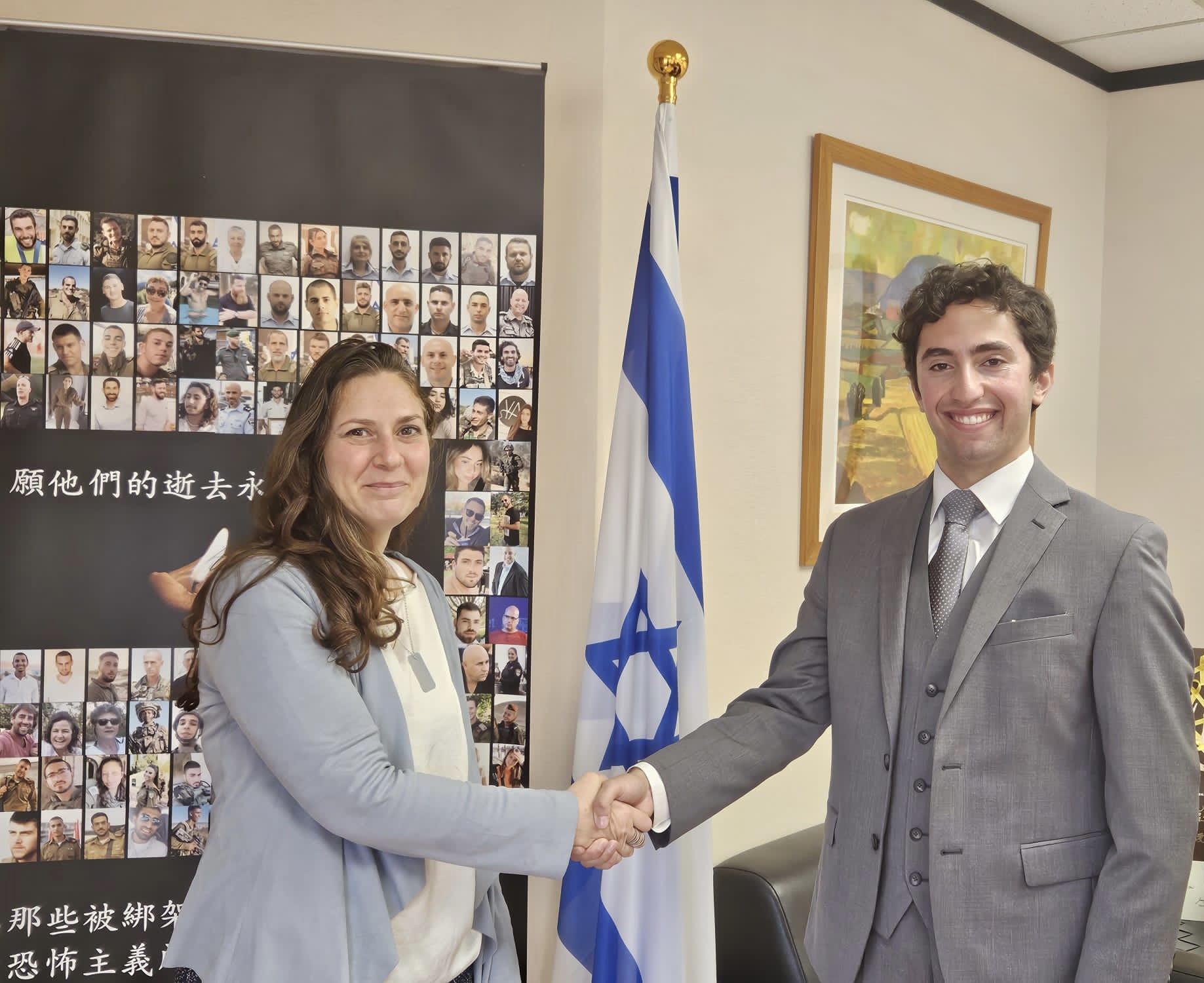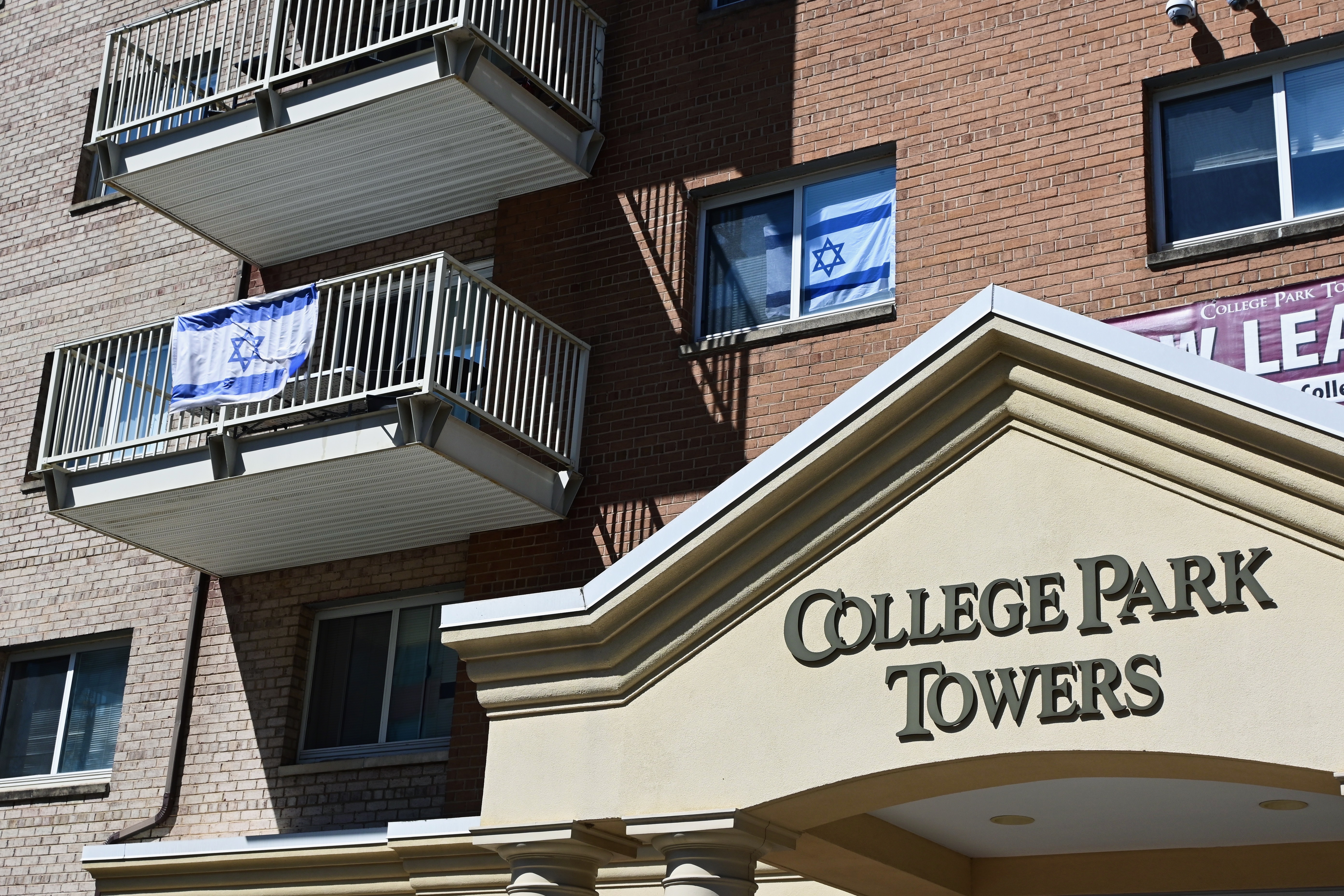By Amanda Engel
Features editor
@acdrazen
The Hillel Multi-Purpose Room was full and silent for the majority of the Yom HaShoah commemoration on Sunday. Yom HaShoah is Holocaust Remembrance Day on the Jewish calendar, and between 80 and 90 students attended the candle lighting ceremony.
Aaron Yitzhaky, one of the event’s student coordinators, wanted this year’s event to be meaningful and include a Holocaust survivor.
“Not having a Holocaust [survivor] speaker last year speak to me for the first Yom HaShoah ever, in my life, kind of hit reality to me in showing me that within a couple generations, or my kids, will not even be able to hear a survivor speak,” he said. “That one moment last year really hit to me in wanting to really do more for this day.”
While the event didn’t include a live speaker, the audience heard the story of Holocaust survivor Henry Oster in a YouTube video. Sarah Zusin, a freshman biological sciences major, did feel the impact of Oster’s story, despite his physical absence.
“Hearing Henry [Oster] speak was really empowering,” she said. “Any words from a survivor mean something.”

Yitzhaky said he was disappointed that they couldn’t get a live speaker this year, but did say the event was a success.
“When looking at the audience tonight, I did not see one person glance at their phone, I did not see one mingle to their neighbor,” said Yitzhaky, a junior kinesiology major. “I saw many tears and many people closing their eyes and just total silence and I think those tears and all that silence just shows how meaningful this one event was for many students.”
After the video, Rebecca Grossman, a senior electrical engineering major, spoke about her experience in Poland during the program March of the Living six years ago, and read a poem by a previous participant of the program. March of the Living is “an annual educational program, which brings individuals from all over the world to Poland and Israel in order to study the history of the Holocaust and to examine the roots of prejudice, intolerance and hate,” according to its website.
The program continued with six students each reading a poem about the Holocaust. They then each lit a candle; each candle commemorated 1 million Jews that perished in the Shoah.
After the candle lighting ceremony, the students stood for a moment of silence and Yair Fax, a freshman computer science major, led the group in a prayer usually recited during yizkor. This prayer was in memory of the dead, and is traditionally said during the main Jewish holidays. Following the yizkor prayer, the students responded to kadesh, a responsive prayer said by those in mourning.

To turn the program toward an uplifting note, Shira Gabay, staff event organizer and Hillel Israel Fellow, read a passage in Hebrew about the righteous non-Jews of the Holocaust who saved and concealed Jews at their own risk.
The main event concluded with a short film about when Nicholas Winton, a man who saved 669 mostly Jewish children in the Holocaust, met a number of those he saved years later.
However, Yosef Palanker, who worked with Yitzhaky, Gabay and Jerry Katz, a sophomore economics major, on the event believes survival should be emphasized through survivors’ stories and not necessarily the lives of those who saved them.The Tzedek Fellow and senior literature major helped put together the event as part of his social justice campaign about Holocaust memory.
“There’s always room for improvement,” he said, but agreed the event was a success.

“I think it’s important to remember the Holocaust was an event that ultimately destroyed the Jewish civilization in Europe and I think we touched upon that definitely, but I think we touched upon stories of survival,” Palanker said. “On Yom HaShoah it’s not about that, it’s not about surviving… it’s really about extermination and genocide.”
Palanker held a discussion after the program to allow people to open up and discuss the Holocaust. They spoke about what the Holocaust meant to them, trying to grapple with Holocaust denial and how they make sure to remember, now, a few generations removed from the traumatic experience. About 10 students stayed for this discussion, but Palanker said it achieved his objective to extend the memory of the Holocaust.
CORRECTION: Due to reporter misunderstanding, a previous version of this article said Palanker didn’t believe in emphasizing survival. However, he meant to say survivors should be emphasized rather than those who saved Jews during the Holocaust.




